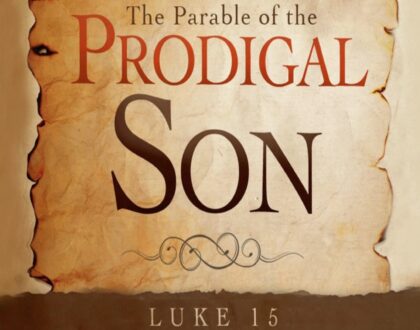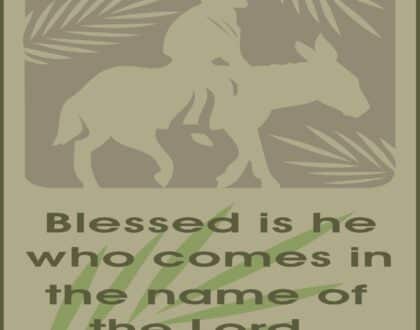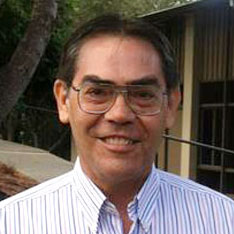Living in Hope

Living in Hope
Second Sunday in Advent Sermon
December 4, 2016
Matthew 3: 1-12
In those days John the Baptist appeared in the wilderness of Judea, proclaiming, “Repent, for the kingdom of heaven has come near.” This is the one of whom the prophet Isaiah spoke when he said, “The voice of one crying out in the wilderness: “Prepare the way of the Lord, make his paths straight.’ ” Now John wore clothing of camel’s hair with a leather belt around his waist, and his food was locusts and wild honey. Then the people of Jerusalem and all Judea were going out to him, and all the region along the Jordan, and they were baptized by him in the river Jordan, confessing their sins. But when he saw many Pharisees and Sadducees coming for baptism, he said to them. “”You brood of vipers? Who warned you to flee from the wrath to come? Bear fruit worthy of repentance. Do not presume to say to yourselves, “We have Abraham as our ancestor”, for I tell you, God is able from these stones to raise up children to Abraham. Even now the ax is lying at the root of the trees; every tree therefore that does not bear good fruit is cut down and thrown into the fire. I baptize you with water for repentance, but one who is more powerful than I is coming after me. I am not worthy to carry his sandals. He will baptize you with the Holy Spirit and fire. His winnowing fork is in his hand, and he will clear his threshing floor and will gather his wheat into the granary, but the chaff he will burn with unquenchable fire.”
According to the apostle Paul, there are three cardinal Christian virtues–faith, hope, and love–all created in us by the power of the Holy Spirit. We tend to focus most of our energy on the subjects of faith and love, partly because our Lutheran tradition is based in great part on these two aspects of the Christian life. And because of that, despite the name of our congregation, we too seldom consider the importance of hope when it comes to thinking about a healthy spiritual life. However, the season of Advent is all about living in hope, so this would be a good time to correct this and focus on the importance of hope in our lives.
Hope is a virtue that pertains to living in time. If we weren’t living in time, there would be nothing ahead of us, nothing to look forward to, nothing to anticipate concerning the future. There would be no future.
When we think about time, we think in terms of three categories: past, present, and future. The biblical concept of time is linear as opposed to cyclical. It is like a straight line instead of a circle. In some cultures, time is thought of as going in a circle so that what is past eventually repeats itself in terms of consequences. When we think of time in this way, the past and the future go in a circle because what has happened in the past will eventually come around and repeat itself in a consequence. The failures of the past will in one way or another repeat themselves such that one can think of life as being stuck in a cycle of failures. There is, of course, no hope in that, except to escape it, if that’s possible. In some religions, salvation is thought of as rising above time so that we don’t get stuck repeating the disaster of the past. In the Bible, and therefore in the western cultures that were shaped by the Bible, the past does not have to repeat itself. It is, of course, possible to get stuck in a pattern of behavior whereby the same failures and problems tend to repeat themselves. For example, consider the life of a procrastinator. His life can be very predictable. He will either never get going on necessary tasks and fail in that way, or he will never finish what he started and fail in that way. And this keeps happening over and over again. The same is true of habituated behavior. When we get into habits of doing the same thing over and over again, we bring the past into the future with us, and time tends to look like it’s repeating itself. For example, in Alcoholics Anonymous, there is a saying, “Insanity is doing the same thing over and over again, expecting a different result.” That is, if you think taking a drink, or a pill, or injecting a drug will solve your problems with anxiety, depression or guilt, and if, each time the problem reoccurs you do the same thing, you will never solve the problem. You will get stuck in a never-ending cycle that will eventually end in despair—another word for hopelessness. And hopelessness means there is no future. The past is the future and therefore you will never escape your problem. Your life will eventually end without ever changing. We could go on and on with this because there are many ways in which people get stuck in behaviors that cause them to repeat the past over and over again.
There is one other common problem in this regard worth mentioning. Sometimes, we get stuck in feelings that have been created in the midst of conflicts or failures and mistakes from the past such that we get stuck in another sense. Here too it’s as if time repeats itself. It happens in groups or families, including churches, when a conflict from the past is never resolved and people get stuck in feelings of anger or guilt. These things effectively disable a person and cause them to carry the conflict into the future as if they were stuck in the past in the same way a person is attached to a ball and chain. Unresolved anger can insure that family divisions go on and on and on as if time itself stood still. Feelings of unresolved guilt can make a person feel perpetually unworthy, and the behavior that results from this can cause them to become unable to have positive relationships. The past will repeat itself such that there really is no future: past and future are the same.
That’s the bad news. However, when we look at the story of the Bible, there is some very good news about time, the future, change, and therefore hope.
Like I said, in the Bible time is linear. The past and the present are not the same. While the events of the past are over and done, and while there is nothing we can do to change that, the future is nevertheless always open to change—to something new—to something that did not exist in the past. This is what makes it linear. It flows from one thing to the next and what’s next is something new. The whole story of the Bible is about how God makes things new over and over again. Whenever I teach the Bible as a whole, I emphasize that what looks like a lot of different stories is really just the sub-plots of one story. The Bible is a story where something new is constantly unfolding. What makes time flow from an unrepeatable past to an ever-renewing future is two things: God’s promises and the faith of God’s people. Whether you’re looking at the story of the Patriarchs, or the slaves being freed, or Solomon building the temple, or the birth of Jesus Christ–all of it is the result of a sovereign God who fulfills his promises for the future. And what enables the people of God to participate in that new future—what enables them to live in hope for what is new, what is coming, what is different about the future is faith in God’s promises, in believing that these promises will be fulfilled. This is what creates hope: hope that the future will be better than the past. What is really important to see here is that when people live in hope because they believe God’s promises, they no longer get stuck in the past. They escape the insanity of trying to solve their problems by doing the same thing over and over again.
By way of clarification, let me say that God’s promises are the same thing as God’s grace, God’s gift of a new future, and God’s gift of redemption from the past.
Consider the message of John the Baptist in our gospel text. “Repent, for the kingdom of heaven has come near.” The promise of God entering into our lives is on the horizon. This will change everything. This is a work of God. It is not our doing. God is gifting us with his very own presence, love, and grace. This means that if we want to be part of this new and glorious future, we need to change. We need to turn around from our old habits, our old ways of looking at things, our old ways of being stuck in the past. To repent is to turn to and believe in God’s future. This is what creates hope. This is what makes the future not only different from the past but a liberation from the past. In other words, because time is under the sovereign control of a God who promises salvation, we can live in hope, and by living in hope we can live differently.
By way of example, consider what happens when people live in hope, when they live anticipating something new and different for the future.
When I was in high school, my friends and I got stuck in some very self-defeating behavior. For a while, the future looked very dim, as if those bad habits would simply continue on into the future. But then through the influence of family, I was presented with an opportunity to enter into something new. This created hope, and because I had hope, I walked away from the enslavements of the past and present, and began taking steps to make this promised future a reality. Life changed completely. I was no longer condemned to repeat the past. Time was moving forward because there was something new to work toward; there were new possibilities to lay hold of and bring into being. This is an example or illustration of why hope is so important in our life of faith. In Jesus Christ, God has opened up a whole new future for us. With respect to the sins and failures of the past, God offers us forgiveness, and freedom from the pain, the divisions, and the failures that sometimes are so hard to let go of, and move on. Through God’s grace, we can become new people, forgiven, healed, and set free. Through faith in Christ, we walk in newness of life.
This is what John the Baptist is telling the people of Judea. His baptism was to be an outward sign of their willingness to confess the fact that they were stuck in sin and disobedience to God. It was a sign that they were willing to walk away from their old lives and seek a new life, free from the slavery to sinful behavior that characterized their past and present.
But this was not yet the new future God had in store for them. John was not sent to create that new future—the future of redemption from those self-destructive behaviors. Rather, he was a messenger—a person sent to announce that in Jesus Christ, God was coming among them to open up a whole new future. He was coming to open up a door that would enable them to enter God’s future, the kingdom where the rule of God would enter their lives in the gift of the Holy Spirit who is the power of divine love and life. “One is coming after me and he will baptize you with the Holy Spirit and fire.” “Fire” is a symbol for eliminating the old so that something new can be built in its place. John adds the word fire because fire is a symbol for the power of purification.
This is what’s in store for us through God’s gift of Jesus Christ. He is the gift of a new future—a future where we will be freed from sin, purified and made holy, righteous and innocent before God. In Christ, we become new people because when Christ is present in our lives, God sees us not as sinners, but as righteous, holy, and pure. Today, therefore, we live in hope. This kingdom has not yet come in its fullness. We still struggle with sin, temptation, failure, and the presence of destructive influences such as ill -health, loss, and so much more. However, we don’t struggle alone and without help. The power of God to bring forgiveness and redemption is present in our lives because we have been baptized with the Spirit who brings the love of Christ into our hearts through faith.
So we live in hope for two reasons. We live in hope because Christ is present with us to lift us up, to heal and forgive us, and to assure us of the power of his love. His love frees us from the failures of the past. And, we live in hope because God has promised that Christ is also going to complete this work of redemption and bring us a future more glorious than we can imagine. Under God’s sovereign rule, history does not repeat itself. Rather, with time, it ushers in a new kingdom where sin, temptation, evil and death will be no more. The history of our lives does not go around in circles where the past keeps repeating itself. It flows in a line, the end of which is the Kingdom of God, of freedom, of joy, of love, and of praise of to God who gives us this future.
In the meantime, as people of hope, we are called to act on the basis of that hope. The future we anticipate motivates us to work for the good of others. Just as a person who lives in hope of becoming a great musician will practice with discipline in order to get there, people of hope work for the good and restoration of their communities. They do not allow evil to overcome them with despair, but rather they work to overcome evil with good. This is the power of hope. It doesn’t just wait for the kingdom to come. It is busy doing the things that help bring that kingdom into being.
So, we can live in hope. God has promised us a completely new future. That future—God’s Kingdom—has already started to come into being. Believe in that future. Believe that Jesus’ victory over death means forgiveness and life for us. This enables us to live in hope and to anticipate that in time all things will be made new.
Recent Sermons

The Parable of the Prodigal Son
March 30, 2025

Getting Ready for the Kingdom
March 16, 2025

Identity Tests
March 09, 2025



